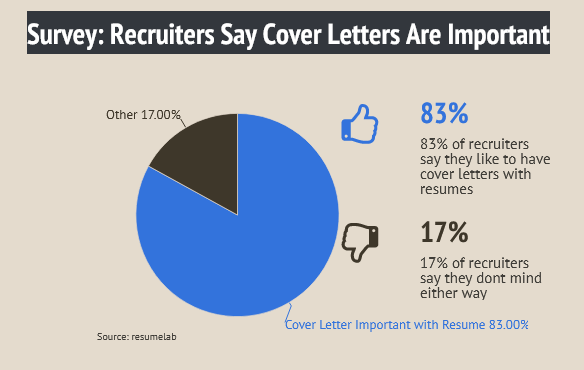
In this article:
1. Why you should send a cover letter (even if it’s not asked for)
2. The one time you should not send a cover letter
3. The four key elements of a cover letter:
- A compelling opening paragraph
- Explanation of your top 3 reasons why you believe you would be good for the job (i.e. your selling points)
- Raise any known issues that they think may disqualify you from the job (this is controversial but important)
- A confident and expectant closing paragraph
4. Free Cover Letter Download (successfully used by my clients)
Free Proven Cover Letter for You to Use
This cover letter has been used by my clients with great success!
Employers have, in some instances told the applicant the cover letter was instrumental in them successfully getting the interview and the job.
I have provided the original Word doc for you to edit, as well as a second copy pdf with my comments and recommended changes
1. Why You Should send a cover letter (even if it’s not asked for)
It’s tempting not to bother with a cover letter due to the extra time and effort involved – but in most circumstances that would be a mistake and will reduce your success rate.
As a job search coach, resume writer, and career counselor of 15 years, I have written many cover letters for clients, and I always recommend sending one with every resume. Here’s why:
(a) A cover letter provides a second opportunity to promote yourself
It allows you to show your distinctive personality better than a resume can.
Although some of your uniqueness will shine through in your resume, a cover letter allows a more relaxed format to express your personality and draw the reader into who you are as a person.
It also provides the opportunity to communicate in an energetic and enthusiastic manner about your love for that type of work – something that cannot often be achieved in a resume (enthusiasm is a common trait employers seek in almost all job types and is one of the key attributes of successful job applicants).
(b) You have the opportunity to address possible objections
A cover letter allows you to address any notable problems in your resume (e.g.) periods of unemployment, multiple short periods with each employer, geographical relocation issues like the fact that you currently live in a different state to the employer, you are returning to the workforce after being at home with your children, etc.
You are almost always better to address any glaring issues candidly in your cover letter, rather than allowing the employer to discover the issue themselves, or allow question marks to fill their mind because there is no explanation given (this will usually result in your application being unsuccessful).

(c) Raising an obvious issue with someone before they get the chance to raise it, creates credibility and transparency between you and the employer.
In the world of sales, they call this a ‘common objection or inoculation theory‘. Let me explain:
If a salesperson is selling a product or service that they know other buyers have raised particular issues about previously, and therefore is also probably in the mind of their current buyer, the salesperson will gain more trust and respect if they raise the issue first with the customer.
And as anyone who has been in sales knows, you can’t sell to a person who doesn’t yet trust you.
Apply the same principle of addressing issues first for greater job search success.
(d) You can match your skills to the new job better in a cover letter
A cover letter lets you explain in a conversational style how your previous skills match the new role, particularly so if you are applying for a different type of job.
(e) A cover letter is usually the first document an employer will read
Because first impressions matter a lot, your cover letter could be even more important than your resume in some situations.
(f) It allows you to add important pieces of information not catered for in your resume
A well-written cover letter can provide an opportunity to communicate any crucial information that does not fit well into the resume structure (e.g.) you know someone who works in the organization (or related to someone who does).
Or you are a current raving fan of the organization (if you are not currently a customer of the organization, perhaps you could quickly become one so you can state this truthfully in your cover letter…these things help!).
Or perhaps you have an interest or hobby that is connected to the job that you would like to explain further… or anything else that you think could benefit your application.
(g) It demonstrates your diligence
A cover letter tells the employer you are keen enough to go to the trouble of writing a letter, even when it’s not required.

Employers see a direct correlation between the way you go about applying for a job, and the way you will work in that job (don’t underestimate this – many employers place more importance on how you handle the application process than your skills and experience).
If you can’t be bothered writing a cover letter, this is taken by the employer to mean you can’t be bothered going the extra mile which often means you’re not someone they want.
Tough but true!
Don’t underestimate your prospective employer’s willingness to look for reasons to bypass your application. They will likely receive hundreds of applications.
They need reasons to cull that list quickly and you don’t want to be one of those reasons.
(h) It allows you to show enthusiasm for the job
It allows you to communicate to the employer why you would love to work there. There is nothing more attractive to an employer than someone who is genuinely enthusiastic about coming to work for them. The more specific your reason, the better. And communicate this in an energetic but authentic manner. Don’t try to manufacture enthusiasm. If you really aren’t that keen to work for a particular organization, you are better to find an organization where you would be. It will be better for you in the long run, and also for the organization.
2. When Not to Send a Cover Letter
The only time not to submit a cover letter is when you are categorically asked not to send one.
If you send a cover letter under these circumstances, you would simply be telling the employer that you can’t follow instructions = no interview!
If there is no mention of a cover letter, either for or against, and the job application website does not have a provision to submit a cover letter, I recommend you upload one anyway as part of your resume, clearly marking it as a ‘cover letter’.
You will be ahead of the pack for this job application because no one else will likely go to the trouble, and you have now gained more valuable self-marketing space.
3. Four Key Parts of a Cover Letter
1. Compelling opening paragraph
2. Explain your top three selling points
3. Discuss known issues
4. Confident and expectant closing paragraph
Compelling Opening Paragraph
You’re opening sentence is probably the most important sentence in the entire cover letter.
This is where you either grab your reader or you don’t.
Remember somebody is sitting at a desk reading 50-100+ of these letters, so you better say something that stands out.
Write to Stand Out

It’s important in your first sentence to get right to the point and make it very compelling.
For example:
“As a high energy, soon-to-graduate marketing major, with hands-on success in generating digital marketing strategies, together with well-honed client relationship skills (see resume), I believe this position is something that I am not only well qualified for but one that I would excel in.”
List Your Top Three Selling Points
By selling points, I simply mean why you think you would be good for the job, and provide evidence of this by outlining past accomplishments.
The middle portion of your resume should promote two or three of your top selling points.
Hopefully, you have done some of this already in your resume.
But here is an opportunity for you to recap just your top 3 reasons, with wording that is sharp and concise (your cover letter should ideally not be any longer than one page and preferably ½ to ¾ of a page).
One of the key skills to hone when writing great cover letters is to say what you need to, with fewer words.

Most of my editing for my website articles, resumes, and cover letters that I provide for clients involve reducing the number of words on the page without lowering impact.
Shorter, more succinct sentences are what you should aim for.
Discuss Known Issues or Possible Objections
This is where you bring to attention any likely negative issues an employer could notice from the content of your resume, as I explained above in #3.
Most people feel uncomfortable doing this because they feel it could impact negatively on their job interview chances.
However, I would encourage you strongly to raise any issues that the astute employer will see anyway.
Most of your competing job applicants won’t do this, so your honest and transparent character will invariably help your job application process (see #3 above for further details).
Free Proven Cover Letter for You to Use
This cover letter has been used by my clients with great success!
Employers have, in some instances told the applicant the cover letter was instrumental in them successfully getting the interview and the job.
I have provided the original Word doc for you to edit, as well as a second copy pdf with my comments and recommended changes
Confident, Expectant Closing Paragraph
These are the last words you get to communicate to the employer before they likely read (or decide not to read) your resume.
Your last words should convey confidence about your ability to do the job without sounding arrogant or presumptuous – this is a fine line to get the balance right.
One of the most important goals to accomplish with your closing comments is to try to positively influence the reader – and get them excited – about reading your resume. A great cover letter can have a powerful impact on the reader’s mental preparation for reading your resume.
And conversely, a poorly written cover letter could very well cause the employer not to bother reading your resume at all.
Here is one example of a closing paragraph:
“If Metro Construction is looking for an administrative assistant who takes tremendous pride in her work, whose track record demonstrates the pursuit of high-quality standards and accuracy, together with proven people skills, then I would love the opportunity to speak with you about how I could help Metro Construction succeed in their future administrative management.”